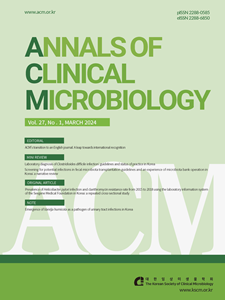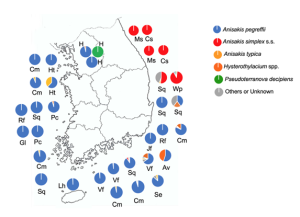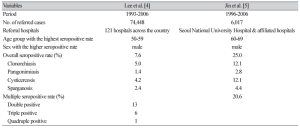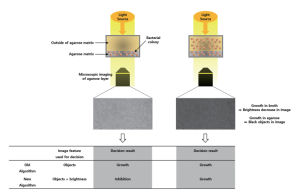Evaluation of the BD GeneOhm MRSA Real-time PCR Assay for Detection of Nasal Colonization by MRSA
Original article PDF Hee Jin Huh1, Eu Suk Kim2, Seok Lae Chae1 1Department of Laboratory Medicine, Dongguk University Ilsan Hospital, Goyang, 2Department of Internal Medicine, Seoul National University Bundang Hospital, Seongnam, Korea Corresponding to Seok Lae Chae, E-mail: rocky@dumc.or.kr Ann Clin Microbiol 2011;14(2):74-78. https://doi.org/10.5145/KJCM.2011.14.2.74Copyright © Korean Society of Clinical Microbiology. Abstract Background: Methicillin-resistant Staphylococcus aureus (MRSA) is a major nasocomial pathogen. The active surveillance of MRSA is essential to limit its transmission. The BD GeneOhm MRSA real-time PCR assay (Becton Dickinson Diagnostics, San Diego, USA) has been recently developed and used for same-day MRSA detection directly from nasal swab specimens. The authors of the present study compared GeneOhm MRSA PCR with culture methods to evaluate its diagnostic performance for MRSA active surveillance. Methods: The present study was conducted on patients admitted to the ICU for six months. A total of 371 nasal swab specimens were obtained from patients at admission




